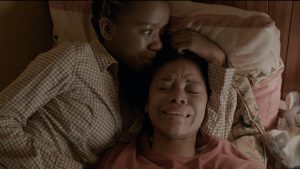Is delaying the disclosure of your child’s HIV status worth it? It’s a NO from me.
I remember how I lay on my sofa that cold evening, watching Shuga Down South and absent-mindedly tugging at the ends of my cornrows when Arabeng discovered the truth about her HIV status. I sat up immediately, shocked. I secretly hoped it was all a bad joke.
How is a 14-year-old expected to come to terms with the fact she has been carrying the virus her entire life and was not in the know? That is some heavy piece of revelation.
Dear reader, believe me when I say Arabeng handled it quite gracefully because I, your girl, would have completely lost my mind if I were in her shoes. All her life, she believed her anti-retroviral pills were vitamin pills and that in itself is scary. I mean, they were just vitamin pills, she could have decided to skip using them for days which would have led to some serious complications.
https://www.youtube.com/watch?v=EUR0Y51DYcU
I understand that families take and do not take certain actions just to protect their loved ones but there should be no secrets when a person’s health is at risk. HIV is still a heavily stigmatized condition and this is a major fear for most parents. While it is okay to be concerned about your child’s psychological state, the potential stigma and isolation they may receive from their peers, do not forget that delayed disclosure causes more harm in the end.
While working on this piece, I had a conversation with an older woman regarding this situation and she believes the right time for a child to know their diagnosis is when they turn 16. I do not agree with that line of thought. If you think your child is old enough to take responsibility for the timely usage of ARVs, then that child deserves to know his/her diagnosis.
https://twitter.com/MTVShugaDS/status/1120776391748923398
Revealing your child’s HIV status has to be treated as a process and should definitely be done in stages. At some point, children begin to ask questions about why they are taking pills or why they need to visit the clinic so often. You have to be prepared to give certain explanations in a manner in which they understand at their level. You know, it is okay to begin with partial disclosure and then full disclosure after a while. This reduces your anxiety and ultimately creates a healthy living condition for your child.
Disclosure is not a one-time situation.
If you find that this may be hard for you to do on your own, please seek help from a qualified medical practitioner.
In order to do all we have discussed in the appropriate manner, you, as a caregiver and parent, have to be well-informed about HIV/AIDS.
We have all you need to know about HIV/AIDS and even more right here!

